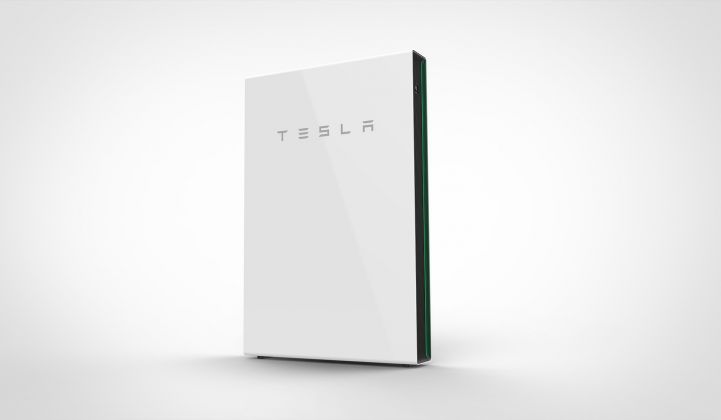Are Quiet Battery Backups a Good Alternative to Generators?

Batteries have a place in home energy systems, but they aren’t yet advanced enough for homeowners to rely on them alone as emergency power sources. Diesel and gas-powered generators are still the most cost-effective sources of power for an emergency outage.
What Batteries are Good For
Most manufacturers market emergency battery back-up systems alongside solar panels. Solar-battery systems, they claim, produce and store enough power to last for days off the grid, with solar panels producing energy during the day and batteries providing power in the evening and at night.
Solar-battery systems work like this: during peak daytime hours, solar panels produce more electricity than the home or business requires. Batteries store the excess energy and supply the home in the evening and at night. Thus, they work in conjunction to reduce dependence on the electrical grid and provide clean energy.
Batteries and Generators Cost Comparison
Even paired with solar panels, however, batteries fall short of generators as an emergency power supply. First, consider their cost.
A new home battery system costs $3,000 on average to purchase. That price, of course, doesn’t include solar panel systems, which cost on average $16,800 to install (before tax credits). High-end battery models, such as the Tesla Powerwall 2.0 (which provides 13.5kWh of energy at a 7.5kW output peak and 5kW continuous output), cost $5,500. A small-output gas generator, on the other hand, such as the Generac PowerPact 7.5 kW generator, costs less than $2,000.
Both batteries and generators also require professional installation, which can cost between $1,000 and $2,500 for generators and between $800 to $2,000.
For batteries, consumers sometimes also have to purchase an AC/DC power inverter, which cost $2,000 or more, in order to convert power output from the batteries for home use.
Battery vs. Generator Total Power
Battery systems also cannot compare with generators in terms of the total energy they provide. According to the U.S. Energy Information Administration, in 2016 the average electricity consumption for a U.S. residential utility customer was 10,766 kilowatt hours (kWh). That’s about 30 kWh per day.
Batteries on the market today fall well short of that power requirement, as few provide more than a few kilowatts of total stored power. To stack enough of these batteries to provide even 20kWh of power would cost tens of thousands of dollars. For a few thousand dollars, however, homeowners can purchase a 20kWh generator.
Another drawback to batteries is that once they run out of power, homeowners can no longer use them. And if it’s snowy or cloudy, the solar panels they’re paired with cannot recharge them. Thus, if a power outage lasts more than a few hours, homeowners relying on batteries for emergency power can easily find themselves out of luck.
Gas and diesel generators do not encounter this problem. As long as they’re refueled or simply connected to a natural gas line, they will provide electricity throughout the duration of the power outage.
That’s the whole point of an emergency power system, isn’t it?
Take Energy Demand Into Account
Another reason why generators are better choices is that they better provide adequate wattage. Because generators produce their power continuously, they can increase or decrease their output depending on the demand and thus power all the home’s circuits.
Batteries cannot do this because they have a very limited output. Say a battery has 10kWh of charge. For it to last five hours, the battery can only dispense energy at a 2-kilowatt-per-hour rate. At such an output, the battery can only power a few utilities in your home at once.
Because of their limited output, some companies outright say their batteries aren’t meant to power heating and AC. Four Star Solar Backup Power, for example, specifically says its battery systems are only appropriate for smaller appliances. Thus, if power goes out in the winter or summer, you cannot rely on batteries to keep your home at a reasonable temperature.
Are you considering backup power for your home or business? The professionals at Midwest Generator Solutions can answer your questions and help you choose the best model and brand to meet your needs. Give us a call at (317) 831-8677 or contact us today for service you can trust.
